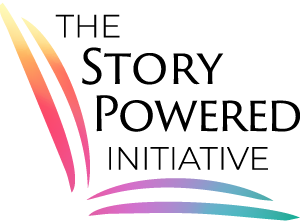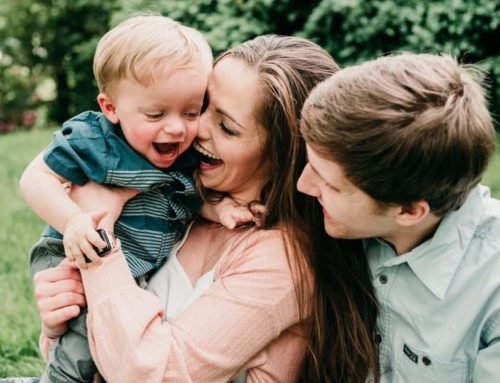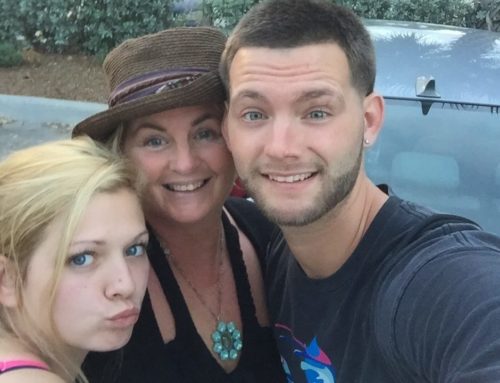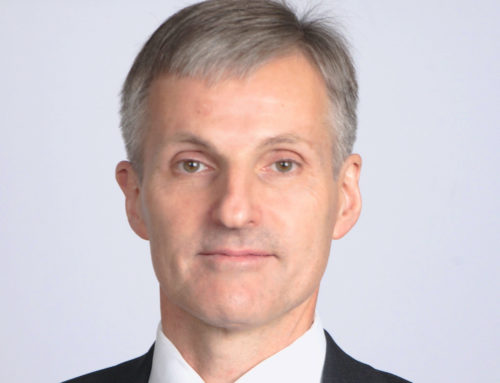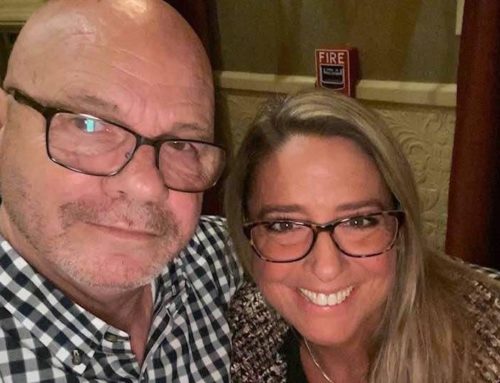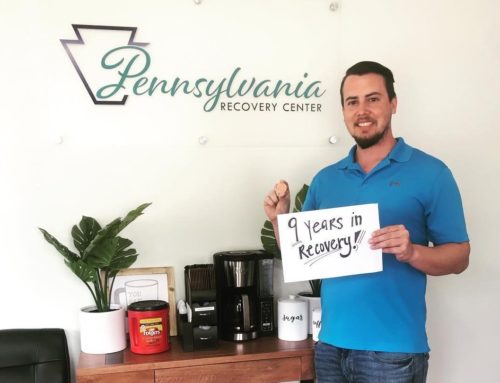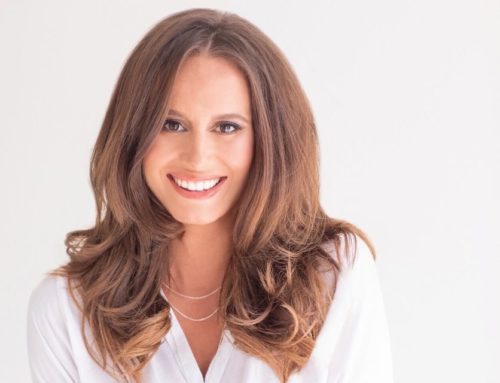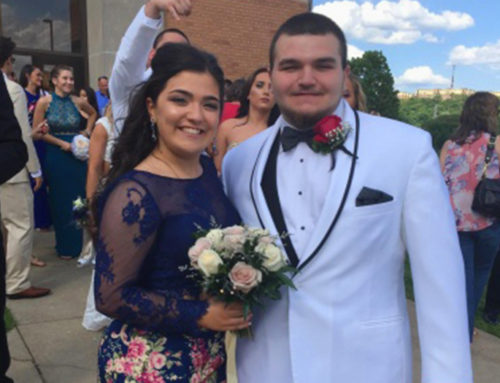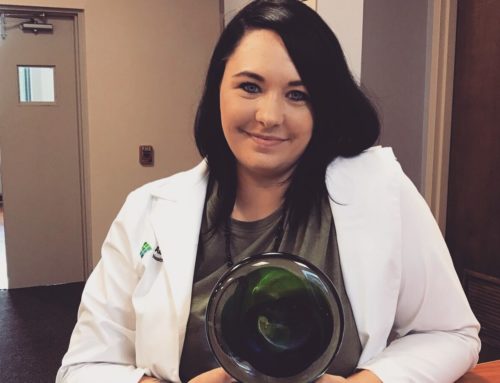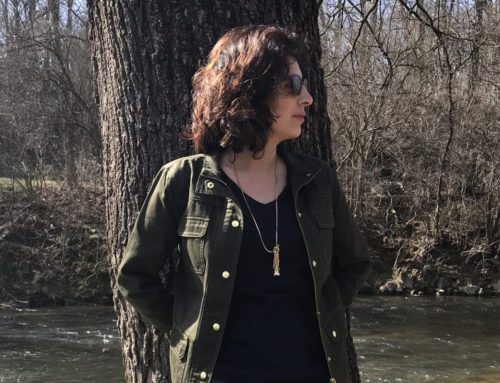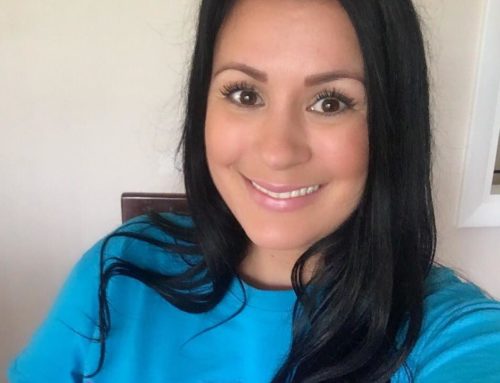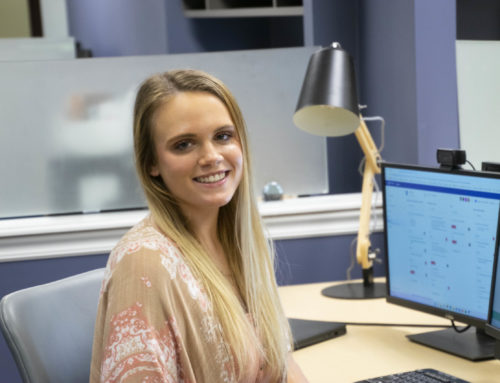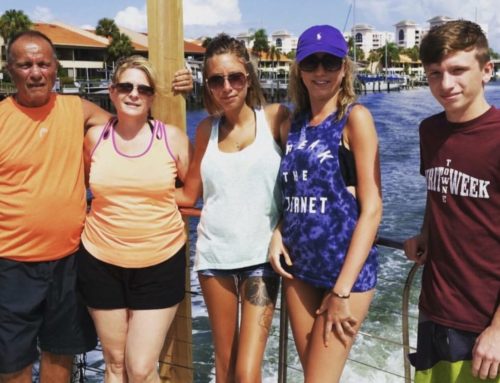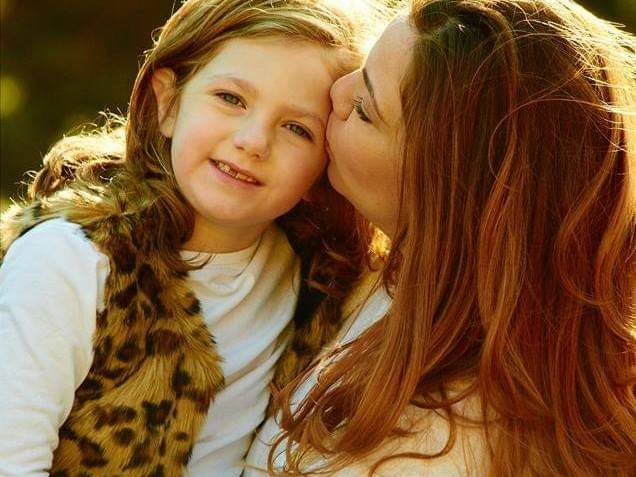
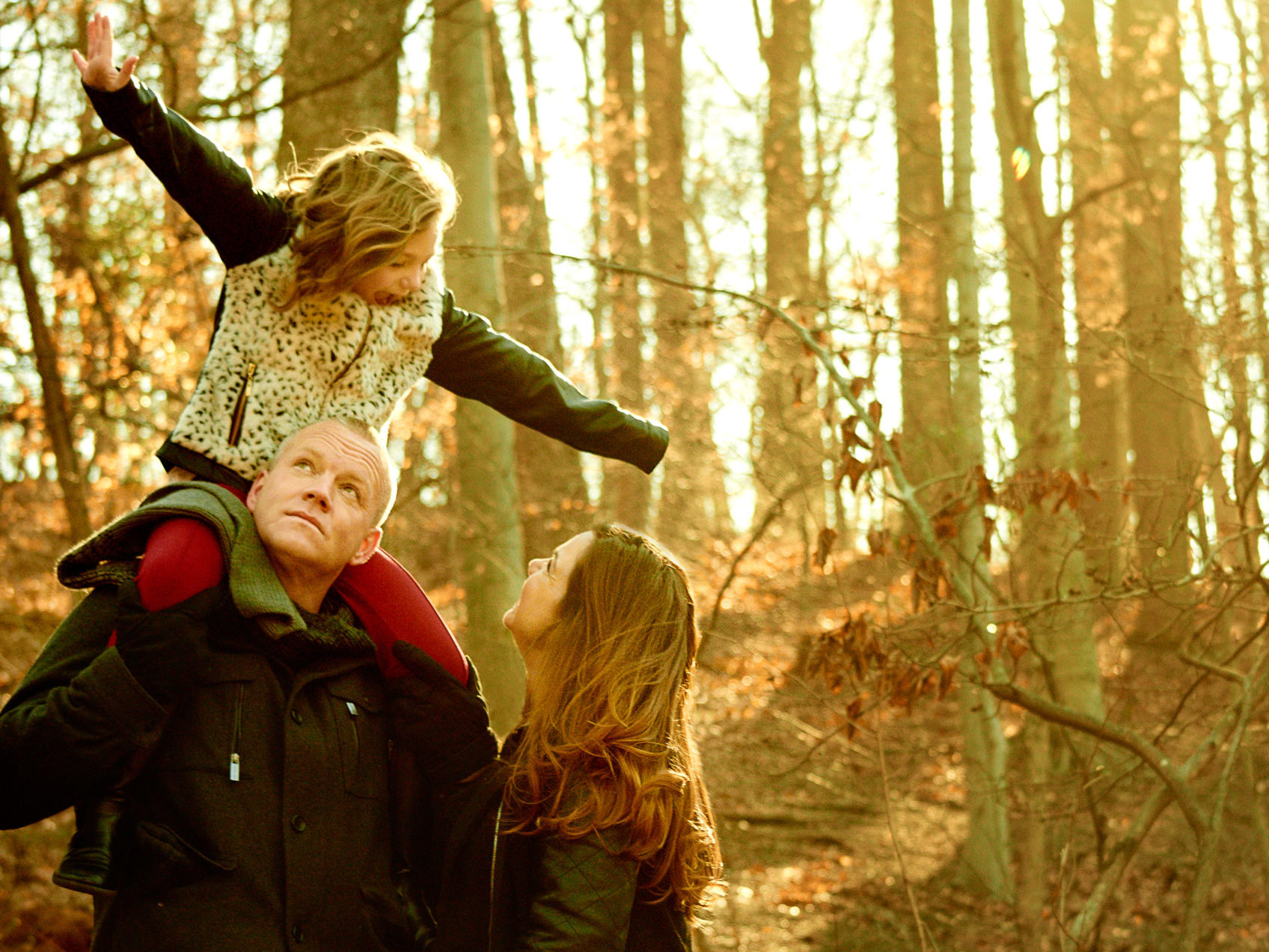
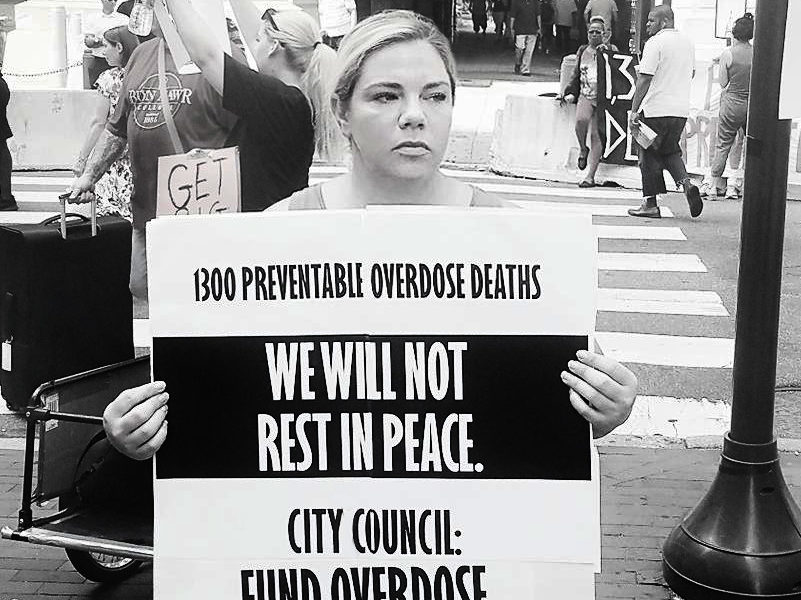
"I want to keep moving forward to break the stigma so that people know addiction is not a moral failure and everybody deserves a chance at life."
I am 36 years old and I’m a person in long-term recovery. For me, that means that for the past 10 years I’ve abstained from any alcohol or mood- or mind-altering substances. I grew up in Northeast Philadelphia in a middle-class neighborhood. I enjoyed the summers I spent on boats with my family, and in elementary school I was in the mentally gifted program. I was raised in a loving household, and on the outside my life looked great. Addiction has forever changed me and touched my life at a very young age.
Different forms of addiction – food, shopping, money, alcoholism, and drugs – touched each one of my family members. My biological mother suffers with alcoholism, and due to her untreated mental health conditions, she was not able to be a parent and show up for my siblings or me; that’s my earliest childhood memory of dealing with alcoholism and addiction. My father remarried when I was about four years old, so I’m thankful I grew up with a mother. My father experienced food addiction, and his diabetes eventually resulted in the end of his life. My sister Ilene was 36, the same age as me now, when she died of an overdose from opioid use disorder. No one had ever explained to me that my family members suffered from a disease and they were sick. I was taught from friends, family, teachers, and society that addiction was a moral failure. Much of my childhood was spent resenting Ilene and my biological mother. To me, they were just bad people. My family’s way of dealing with the chaos of many different issues was to become avoidant. It is much easier to put on a happy face and keep it moving.
My issues with substances began around 12 or 13 years old and centered on my desire to feel approval. As a young girl, I had extremely low self–esteem, and always wanted to feel acceptance from anyone. I was always looking for an escape. Instead of going to class where I probably would have excelled, I was drawn to hanging out in the woods drinking alcohol and experimenting with other substances. Alcohol and drugs gave me this freeing feeling and a feeling of confidence – the feeling I was searching for. At the time, I was trying to navigate a lot of challenging emotions that mostly centered around my family. Luckily, with alcohol and drugs most of my feelings diminished to nothing. I enjoyed not feeling self–conscious and feeling free from my own negative thoughts. In the ninth grade, I was considered delinquent due to not attending class and was forced to go to an alternative school. I graduated high school with a diploma and a poor education at 15 years old.
At the age of 16, I thought to myself, “It is time to grow up and be an adult. I had my fun as a child. I really need to get my life together, so I am only going to drink alcohol. No more substances. I’m an adult now.” I took a few college classes and started working in restaurants. Working in restaurants was a whole new world for me, and I loved it. It was fast-paced, and we had this mentality in the service business that we work hard and play hard; there was lots of alcohol. To me, the most important thing was to be able to look good on the outside yet feel good on the inside as well. Since alcohol is accepted, I felt like I had finally found what worked for me to mask all of my feelings deep inside.
The addiction quickly progressed from alcohol use to cocaine and then to opioids. My boyfriend at the time was a cystic fibrosis patient who was prescribed many different types of medications. Unfortunately, he passed four years ago. I was always trying to find this chemical balance of what, in my mind, I thought was normal. If I used one substance, like cocaine, to come up, then I told myself I needed one substance, like an opioid, to come down; it was a constant Ping-Pong game trying to find some balance for my mental health. In my early 20s, my family tried to do an intervention. It was successful, as I already was silently begging for help. In my mind rehab was going to be this great, magical experience where I would get my life together. Doctors would help me and guide me. This was the cure! After a five–day detox in a hospital gown, I was then discharged with no aftercare plans put in place. Three hours later, I went and used to help take away the withdrawal symptoms I was still experiencing. Around age 23, I started using heroin because it was cheaper. I remember the large feelings of shame that came with that small bag of dope. I would often think about how I was the new failure in my family. Shame and guilt kept me isolated from family and friends for a long time. Shame was a reason I did not reach out for help. When my father passed away, I remember feeling scared and ashamed that my dad was watching me from heaven while he had already lived in torture with my sister’s addiction.
Through my experiences, I now have a much better understanding of my sister’s addiction and of my dad’s experiences helping her. I will never forget a conversation I had with my dad. It was three o’clock in the morning, and I was probably intoxicated. I had this anger inside of me and I couldn’t understand it, so I said: “I don’t understand why you run around and chase Ilene all over the place. Don’t you know she does not want help? Don’t you understand this brings nothing but chaos into our lives?” Basically, I was saying that he wasn’t focusing on me or this family. He was sitting at the kitchen table and was hysterically crying, and he said, “You have no idea what it’s like to watch your own child try to kill herself every day and there is nothing that you can do about it.”
As my use progressed, I became unemployable. I had bruises and marks all over my body from constantly injecting myself. I stopped caring for myself and would stay in the same clothes for days without showering. I stopped talking to my family and to long-time friends. I didn’t want them to see me in that form. Guilt was always present through the process. By age 26, I had hit another emotional bottom. My boyfriend’s family intervened. I broke down, hysterically crying. It was a release of emotion for me, and I said that I wanted to get help. That was the start of my true recovery process.
It started in Horsham Clinic on a dual diagnosis unit. The reason why I was on that specific unit was because the only way to access treatment services was to say you were going to commit suicide. I was considered “lucky” to receive 11 days of treatment, but I could not get approval for rehabilitation. The social worker had told me that “I had burned out the system” from my five days of detox five years prior. I lied and told them I was suicidal with a plan and I heard voices every day to stay in that facility. I was willing to say anything because I had so much fear of leaving and returning to a life of drugs. After discharge, I lived in a recovery house where I engaged in a 12 Step Fellowship. The people I met were amazing. They supported me in every way possible. I remember having a 90-day obsession with sticking a needle in my arm. I had drug dreams every night and could not believe that I could get through each day without using; but every day got a tiny bit easier. I hardly slept for the first 90 days. Each day was a new challenge. Engaging with people who could walk with me through the process of early recovery was the best thing for me.
Today I am a family member and a friend. In my second year of recovery I gave birth to my daughter. She brought a lot of positive energy into my family and into my world. As time went on, I gained self-confidence, clarity, and sanity to go to school. I took an EMT course and worked in home healthcare. Eventually, I had to follow my passion for advocacy and applied for a position at Mental Health Partnerships. I started working in a homeless outreach program in Bucks County as a Certified Peer Specialist. A Certified Peer Specialist is a person with lived experience with mental health and/or substance use. In my job interview, they embraced my past and my recovery; that astounded me, and I really wanted to be a part of that. For so long, I lived in a 12 Step Fellowship bubble where we are anonymous, we don’t tell outsiders what’s going on, and we’re even taught how to avoid difficult conversations regarding our substance or alcohol. It was a freeing feeling to talk about my lived experience and use it to support others.
This is why I am sharing my story. In my work today, I’m a connector. Often times when policies and programs don’t work, it’s because the people who have experienced addiction and/or mental health issues are not at the table. Unfortunately, 10 years later people still tell the same story of trying to access treatment. While some small improvements have been made, there is a ton of work to do. My role is to advocate for people whose voices are not heard. I want to keep moving forward to break the stigma so that people know addiction is not a moral failure and everybody deserves a chance at life.
